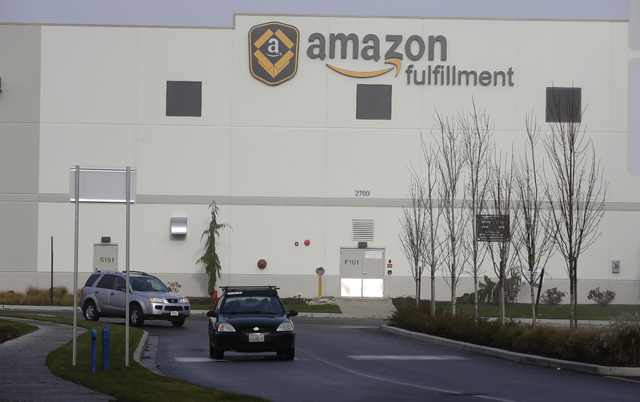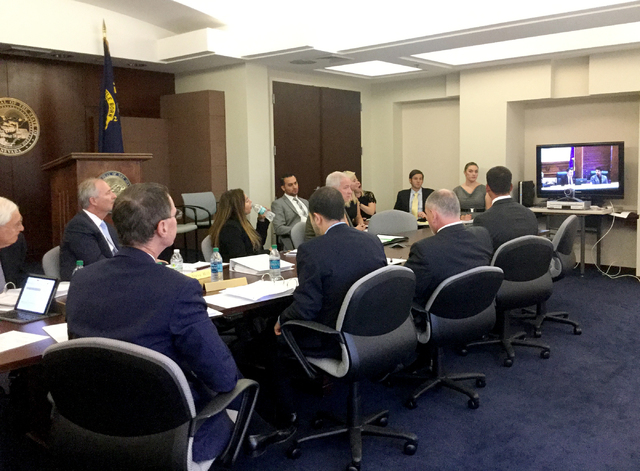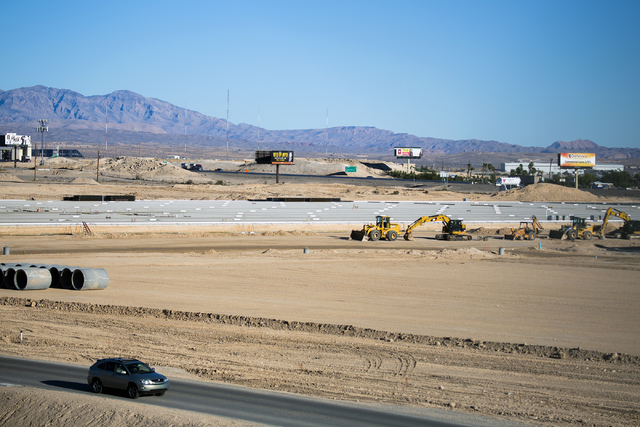Amazon didn’t need Nevada’s handout, expert says





A national economic development expert argues that Nevada shouldn’t have helped Amazon build a fulfillment center in North Las Vegas, which is slated to open next summer.
The Governor’s Office of Economic Development board approved about $1.8 million in tax abatements for Amazon.com.kycd LLC on Nov 17. GOED’s justification was that the company is estimated to generate about $44.7 million in new tax revenue over 10 years and will make hefty initial capital investments.
But a new study by Good Jobs First argues Amazon would have come to Las Vegas and made those investments anyway to implement its promoted same-day delivery service.
“Why on earth would taxpayers want to pay a company to do something that it has publicly declared to its shareholders it has to do?” said Greg LeRoy, executive director of Good Jobs First, a watchdog group promoting accountability in economic incentives offered to companies. “Everybody knows that the company has to build all these new fulfillment centers and sortation centers and they have to build more of them increasingly close to their big markets, their big concentrations of Prime subscribers.”
Steve Hill, director of GOED, said he stands by the board’s decision.
“This Amazon multi-state distribution facility will export a majority of its product out of a Nevada and, therefore, qualifies for abatements,” Hill said in a statement, adding that as of the 2015 legislative session, “abatements are now tiered to wages paid by companies.”
Ashley Robinson, an Amazon spokeswoman, did not directly address the issue, but instead said in a statement that Amazon is “focused” on supporting the communities where their employees live and work “whether it’s through the direct creation of great jobs at our fulfillment centers that pay 30 percent higher than traditional retail jobs, supporting local businesses near our sites, or creating hundreds of thousands of additional jobs through our investments across the country.”
Amazon has built or leased large warehouses at a rapid pace, and is continuing to do so.
Steve Banker, vice president of supply chain management at logistics industry analyst firm ARC Advisory Group, wrote in an online post that Amazon had about 30 global fulfillment centers in 2009, and built over 100 more by the end of 2015. By the end of 2016, Banker wrote there will be 23 sortation centers — smaller facilities that bundle deliveries by ZIP code — for same day delivery; there was only one sortation center in 2013.
“It’s another measure of their urgency,” LeRoy said.
Amazon is now relying on the type of abatement package it received from Nevada, LeRoy said, since the company no longer can avoid collecting sales tax, in general. Although Amazon has operated a warehouse in Nevada since 1999, it started collecting sales tax from online sales in Nevada only in 2014, according to the Institute on Taxation and Economic Policy.
“In many states in which Amazon had warehouses, it was taking the position that as long as those warehouses were owned by a separate subsidiary, Amazon wasn’t obligated to collect sales tax in those states,” said Michael Mazerov, senior fellow in the State Fiscal Project of the Center on Budget and Policy Priorities in Washington, D.C.
“Amazon has subsequently abandoned that position,” he said, as states have better defined laws to ensure that online sales tax can be collected from Amazon sales.
“Once Amazon could not avoid changing its sales tax collection practices, it used the prospect of that new tax revenue, and more warehouse jobs, to negotiate for economic development subsidies to underwrite the cost of expanding its distribution system,” the study states. “With its rapidly-evolving distribution strategy and new internal tax-break expertise, Amazon set out to expand its physical presence, relying less on sales tax avoidance and more on economic development awards.”
GOED awarded Amazon with a 2 percent sales tax abatement on certain capital equipment purchases for two years, totalling about $1.1 million, as well as a modified business tax abatement for four years, totalling about $400,000, and a personal property tax abatement for 10 years, totaling about $300,000.
Contact Nicole Raz at nraz@reviewjournal.com or 702-380-4512. Follow @JournalistNikki on Twitter.












